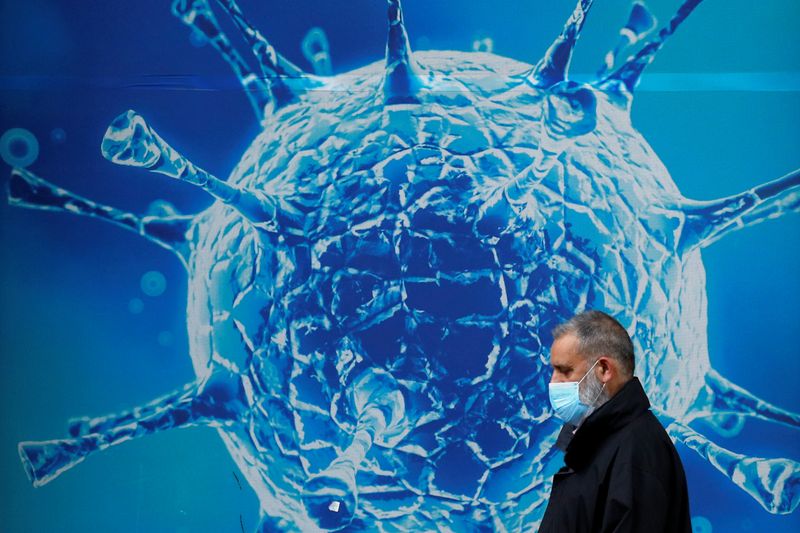(Reuters) – Here’s what you need to know about the coronavirus right now:
Vaccine developers pledge to uphold testing rigour
Nine leading U.S. and European vaccine developers pledged on Tuesday to uphold the scientific standards that their experimental immunisations will be held against, amid a hurried global race to contain the pandemic.
The companies, including Pfizer, GlaxoSmithKline and AstraZeneca, in a joint statement, made a “historic pledge… to uphold the integrity of the scientific process as they work towards potential global regulatory filings and approvals of the first COVID-19 vaccines”.
The unusual move to promise to play by well-established rules underlines a highly politicised debate over what action is needed to quickly rein in the spread of the deadly disease and to jumpstart global business and trade.
‘Don’t kill your gran’
British ministers and medics are urging the public to get serious again about the coronavirus after a sharp rise in infections raised fears the outbreak was slipping out of control in some places.
Close to 3,000 new cases were recorded on Sunday and again on Monday – a sudden jump from daily numbers much closer to 1,000 for most of August, and the highest since May.
Health Secretary Matt Hancock said young people had become too relaxed about social distancing and could endanger older relatives through complacency.
“Don’t kill your gran by catching coronavirus and then passing it on. And you can pass it on before you’ve had any symptoms at all,” he told a BBC radio programme aimed at younger audiences.
South Korea battles second wave
Thousands of trainee doctors in South Korea returned to work after ending a more than two-week strike as the country grappled with sustained three-digit rises in new daily coronavirus infections.
The Korea Center for Disease Control and Prevention reported 136 new cases as of midnight on Monday, after the rate fell to a three-week low of 119 a day earlier. The total infections rose 21,432, with 341 deaths.
The daily tally has steadily dropped since it reached a peak of 441 last month after the government imposed unprecedented social distancing rules to blunt a second wave of outbreaks from churches and political rallies.
Efforts to curb the latest epidemic has been complicated by the strike launched on Aug. 21 by some 16,000 intern and resident doctors against the government’s medical reform proposals.
China’s Xi honours COVID-19 ‘heroes’
President Xi Jinping honoured the “heroes” of China’s “people’s war” against COVID-19 at a ceremony on Tuesday, lauding the country’s resilience as well as the decisive role played in containment efforts by the ruling Communist Party.
Defying charges from the United States and elsewhere that early failures enabled the coronavirus pandemic to spread more quickly, Xi said that China acted in an open and transparent manner throughout, and took decisive actions that saved lives.
Xi awarded Zhong Nanshan, the senior medical adviser and coronavirus expert who helped shape China’s COVID-19 response, with a Medal of the Republic, the country’s highest honour.
There was no mention of Li Wenliang, the doctor who was punished for spreading information about a new infectious disease in Wuhan, and whose death from COVID-19 in February sparked nationwide outrage.
School closures could hit output for generations
Disruption to schooling stemming from the COVID-19 epidemic will cause a skill loss that could result in a 1.5% drop in global economic output for the rest of this century, the Organisation for Economic Cooperation and Development estimated.
For the United States, that would represent an economic loss of $15.3 trillion, the OECD said in a report published on Tuesday, with the bill rising higher still if disruption to education extended into the next academic year.
“Learning loss will lead to skill loss, and the skills people have relate to their productivity,” the report said, explaining the forecast drop in global GDP.
Governments around the world closed schools to curb the spread of COVID-19, in most cases for around 10 weeks, or one third of a year of schooling.
(Compiled by Linda Noakes; Editing by Alex Richardson)
























